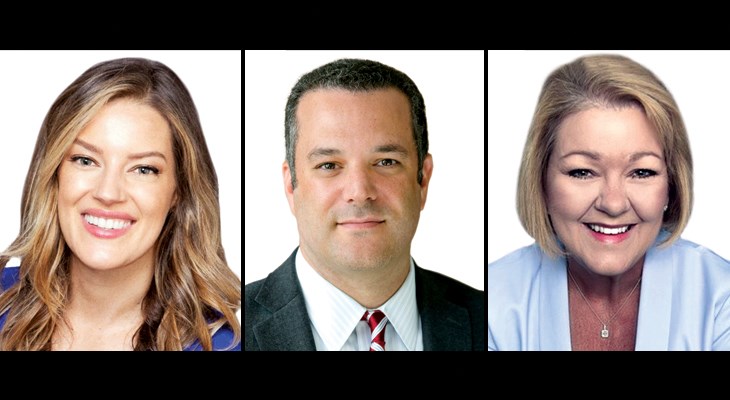Consumer inflation is the highest it's been since the early 80s, says Laurel Graefe, Regional Executive and Senior Officer at the Federal Reserve Bank of Atlanta - Nashville Branch. Short-term inflation expectations have spiked over the past year and a half, longer-term inflation expectations from consumers, professional forecasters, businesses, seem to be a bit better anchored. And the new uncertainty thrown into the mix from the geopolitical crisis in Eastern Europe and is putting significant inflationary pressure on the market.
"One thing we know over the past year is almost across all industries, firms were telling us, demand is so strong that I'm able not only to pass on rising costs, but to add a little extra to continue to build by margins, because consumers aren't walking away. I'm dealing with the scarcity crisis. I can't meet all the demand, so I can essentially charge whatever I would like to charge for my goods and services because the demand is there. I think the question of how that story changes going into this year, whether demand starts becoming more sensitive to prices, how firms are thinking of building in wage increases, building in price increases as we go further into the year, that's a big question mark for me."
In terms of the local business environment in Nashville, Wanda Lyle, Chair of the Nashville Chamber of Commerce, says sometimes what gets lost when the focus is on the larger national or even global conversation about the economy is that even though there's been a narrowing in the cost of living between Nashville and the national average, Nashville is still at 84 percent, 16 percent below the national average.
The city faces some common challenges in workforce, transportation, affordability, that challenge many U.S. cities, but people are looking at them and trying to come up with plans and opportunities that will continue to move those forward.
"One of the advantages we have is that we have 20 institutions of higher learning — whether it's four-year universities, community colleges, technical schools — in the greater Nashville area, which is 120,000 students, 60 percent of whom stay here. That's come down just a little bit over the past 10 years, but that's a big number of students that don't leave the city. So, we do have a lot of opportunity on the pipeline for workforce, which is the problem everybody's facing across the country."
From the perspective of Shane Lieberman, Executive Director, Federal Affairs Manager, at UBS, potential tax changes from this administration aren't dead. The Build Back Better initiative, for instance, stalled and failed to come together, but President Joe Biden, in his State of the Union address, brought it back into the conversation. So, while there are overtures, "I don't think it bears fruit and this bill actually happens, but it might," Lieberman says. "So, we have to take a step back and think to ourselves, well, what was in that bill?"
While being cognizant of tax and other changes that could resurface from the Build Back Better initiative in other forms is prudent, Lieberman says business leaders should put more attention on a more likely scenarios. The 2017 tax cuts expire at the end of 2025 — estate taxes, marginal tax rates. That means even if there isn't a major tax bill this year, taxes changes are set to happen in 2025. While that's three years away, those who are thinking about estate planning and trust planning should begin to have those conversations to begin to prepare.
"Chance favors the prepared mind," he says. "And the way to be prepared here is to recognize that while it may not happen this year, it's going to happen. Something will happen in the tax base and it's better to be prepared for that."




